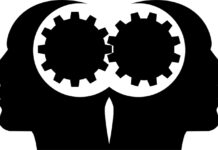
Magnesium participates as a co-factor in more than 300 enzymatic reactions in your body which comes as a surprise to people who think that FDA-approved medications hold a clinical edge over nutrients. Medications tend to steal the show, but I can’t name one drug that functions in 300 metabolic processes in your body. Not one!
Even the National Institutes of Health says magnesium is necessary to help maintain normal muscle and nerve function, keep your heart rhythm steady, support a healthy immune and bronchial system and keep your bones strong so your hip doesn’t give out.
According to a survey by the U.S. government 75 percent of American adults have a magnesium-deficient diet. That’s three out of four of you. It’s getting worse due to the massive coffee consumption because compounds in coffee are ‘drug muggers’ of magnesium. Human deficiencies occur more often because the soil is very deficient in magnesium, so the salad that grows in the soil isn’t soaking up as much mag as it used to back in the day! When you eat it, it’s not as nutritious.
Magnesium levels impact one hugely important organ in your body, your heart! Everyone is so afraid of a heart attack and yet, I bet you don’t know that a low level of magnesium is associated with an increased level of C-reactive protein (CRP). CRP is a marker for type of inflammation and it’s a silent killer. High CRP levels are associated with heart disease.
Has anyone ever tested your RBC magnesium levels if you have asthma? The reason I ask is because low magnesium levels have long been associated with several adverse, dangerous lung conditions. Even a recent study confirmed how low levels of magnesium and vitamin D are associated with an increased incidence of severe breathing difficulties! Sadly, most patients are put on inhalers for their entire lifetime, without ever getting tested to see if low mag is contributing.
A low magnesium level can damage your brain and mood. In my book, Headache Free, I provided research to show how magnesium can reduce headache frequency, while improving mood and restorative sleep. No surprise there… magnesium is needed to create dopamine, serotonin and other happy brain chemicals. But a very common mistake is taking the wrong form. You will need the kind of magnesium that actually gets into your brain, like the “threonate” form, as opposed to the laxative form of magnesium like “citrate” which slides through your colon.
I have much more to share with you about magnesium’s role in women’s health, bone integrity and cardiovascular disease so I’m inviting you to my website (suzycohen.com) to sign up for my newsletter. When you do that, I’ll email the longer version of this article. You do need to read it because three out of four American’s are magnesium deficient, so if it’s not you, then three of your relatives are deficient and that means their heart and brain are at risk.






